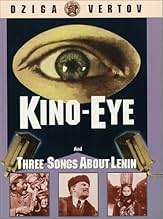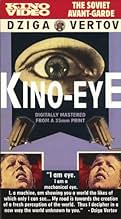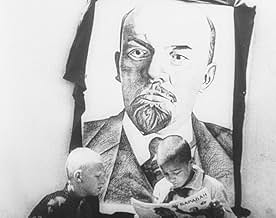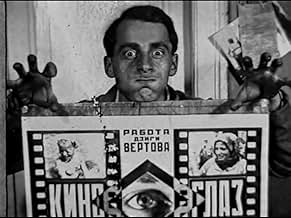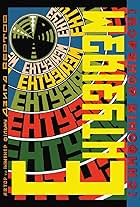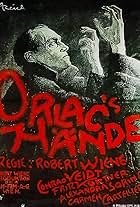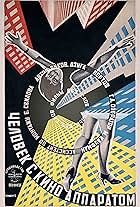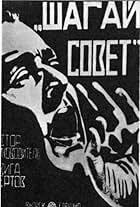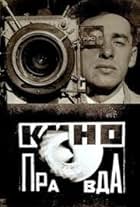I watched this film as part of a documentary film class, and it was at least visually one of the best I had seen. It's got a real quality to it that tries to separate itself, unintentionally of course, from the more simple propaganda films. Of course, many of the images here are displayed to show the working life of the people, some of the levity, the everyday occurrences, and mostly enveloped in scenes revolving around children. Much of this is meant, for the period, to rally support for the causes of the time, as Dziga Vertov, at least from his writings, comes off as wanting immediate change through the power of the cinema.
Over time, as it is silent and- due to the staging of some of the scenes (the opening vodka blintz is amazing, if maybe not seeming all the way on-the-spot real)- doesn't inspire the greatest amount of attention to detail though. Despite some of the lesser qualities of the film, the pure cinematic abandon and confidence in this new emerging way of telling stories in a subjective lens detailing real life endures to this day. Seeing some of these scenes with the pioneers, their practices, is pretty amusing. And a little trick involving the bull going backwards on the beltway is also close to being funny (and riffing on tricks already at use in comedies. But more than anything innovations like these strike a chord within their apparent themes. Messages do abound in the film, but it's not entirely the focus here. What it really is is just a fearless (for its time), fascinating use of the silent portable camera, where shots could be possible that weren't before giving more chances to capture a truth in life not found in studios. Even as it's years after the Russian revolution and the country's cinematic aspirations change drastically, something quirky and sincerely made like this is worth a look. If nothing else as film history, like one of the first examples of what today is reality TV, or rather what's really lacking in it.

